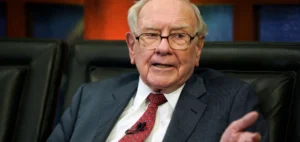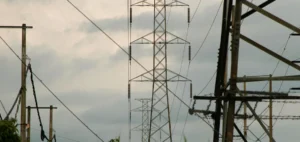A new blow for EDF: the group has revised downwards its estimate of nuclear production for the year 2022, due to a longer than expected shutdown of four reactors for corrosion problems, and because of a labor movement.
Until now, EDF planned to produce between 280 and 300 TWh (terawatt-hours) in 2022. From now on, the range, which had already been lowered since the beginning of the year, should rather be between 275 and 285 TWh, according to a statement of the company published Thursday evening.
The four reactors concerned by an extended shutdown are Cattenom 1 and 3, Penly 2 and Chooz B1. The reopenings of Chooz B1 and Penly 2 have been postponed to January 29, although these reactors were scheduled to restart on November 13 and 23, respectively.
Cattenom 1 and 3, which were initially scheduled to be restarted on November 17 and December 11, have been postponed to February 26, 2023.
EDF did not comment on the possible financial impact on the group’s results.
Last week, the energy giant had estimated that the record decline in its electricity production would weigh on its gross operating surplus (Ebitda), an accounting indicator of profitability, by up to 32 billion euros.
Its electricity production is at a historically low level due to the unavailability of nearly half of the 56 reactors in the nuclear fleet – only 29 are operational -, shut down for planned maintenance or suspected or proven corrosion problems.
To make matters worse, the fall labor movement in the power plants led to a reduction in nuclear production or postponement of work on certain reactors.
In mid-October, management postponed the restart of five of them in the context of a strike over wages at some sites, before an agreement was signed two weeks later.
60 billion in debt
In the first nine months of the year, nuclear generation in France amounted to 209.2 TWh, 59 TWh less than in the same period in 2021.
The estimates for 2023 and 2024 are maintained, respectively 300-330 TWh and 315-345 TWh, says EDF Thursday.
In this context, the arrival of the future CEO Luc Rémont, who is due to arrive in mid-November according to the Minister of the Economy Bruno Le Maire, promises to be eventful.
At the end of October, the new leader presented his plan to overcome the “serious crisis” that the electric company is experiencing.
He described a situation “critical in the short term”, evoking a crisis “of a technical and industrial nature”. His number one priority will therefore be to allow the restart of a maximum number of reactors during the winter to avoid blackouts when the French turn on their radiators.
But he will also have the heavy responsibility of reviving nuclear power, as the government wants to build at least 6 new EPR2 reactors.
EDF’s financial situation is also a source of concern, as its debt could reach 60 billion euros by the end of the year.
The group, 84% owned by the state and soon to be 100% renationalized, also presented last week a turnover up 78% over 9 months to 101.5 billion euros against 57 billion compared to the same period in 2021, but this is only the mechanical reflection of the increase in gas and electricity prices on the markets.
Due to the difficulties of alternative energy operators, nearly one million customers have returned to EDF in one year.
But this has forced the group to buy on the markets at a premium an electricity it does not have, while the company had to sell more nuclear electricity at low prices to its competitors in 2022, through the mechanism of Arenh (regulated access to historical nuclear electricity).






















